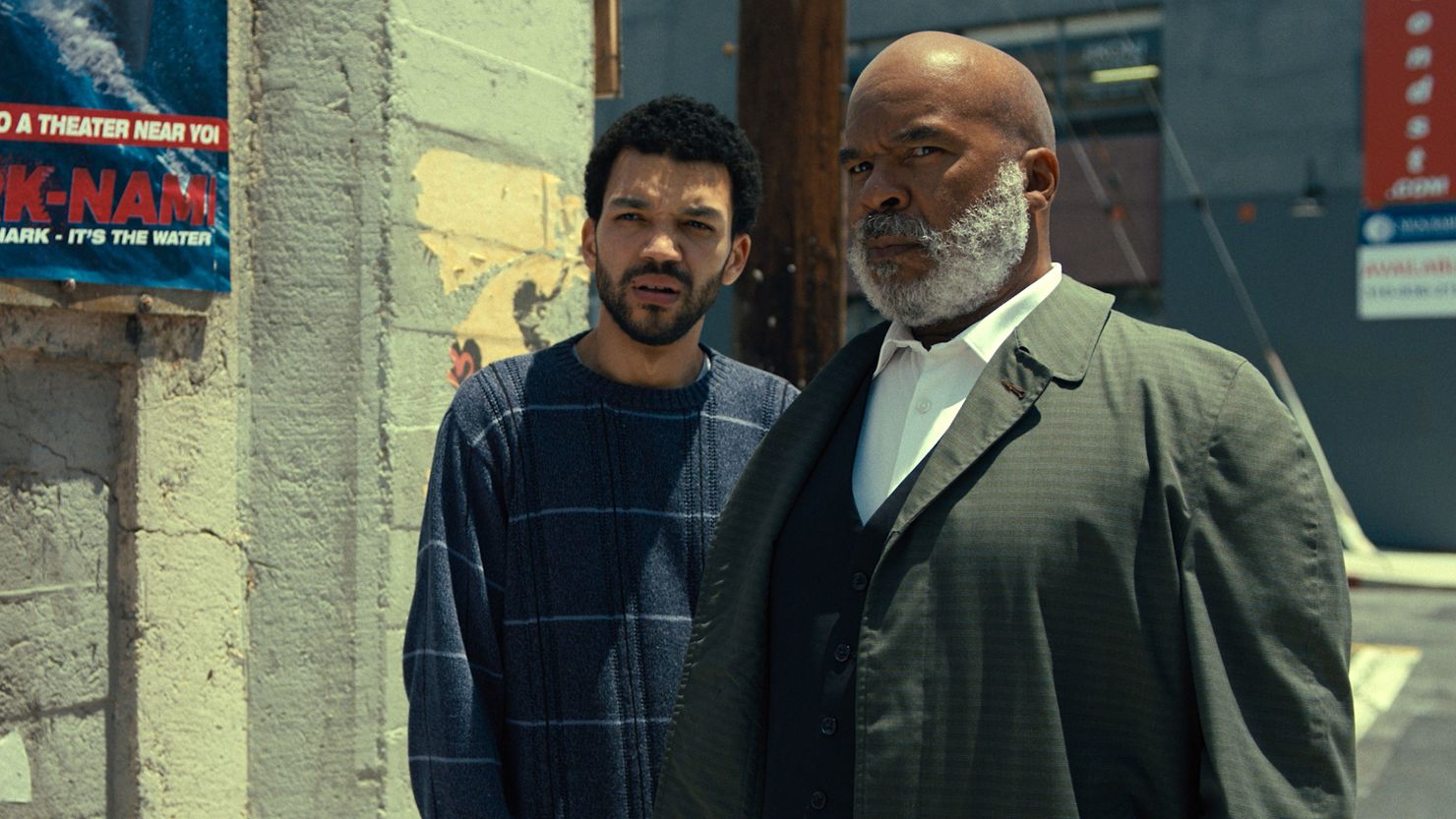There’s a part of me that wishes I could forget “The American Society of Magical Negroes,” but no amount of wishful thinking can undo its imprint. Kobi Libii’s debut feature is a bold attempt at satire, exploring the idea of a secret group of Black individuals tasked with easing white people’s discomfort. While the concept itself is intriguing, the film’s delivery falters, leaving us with a mix of missed opportunities, half-formed ideas, and humor that doesn’t quite stick.
The film centers around Aren (Justice Smith), a soft-spoken artist struggling to get recognition for his vibrant yarn sculptures. His lack of assertiveness leads him into uncomfortable situations—most notably when a white woman accuses him of theft after he tries to assist her. Enter Roger (David Alan Grier), who swoops in to rescue Aren and recruit him into the “society,” a covert group with one mission: to ensure white people’s peace of mind while remaining ‘safely’ Black. What starts as a clever commentary on the “magical negro” trope quickly spirals into something tonally uneven.
The satire here is sharp at times, poking fun at films like The Green Mile and The Legend of Bagger Vance. Yet as the story unfolds, it begins to lose its bite, with Libii seemingly unsure whether the film is truly critiquing the trope or unintentionally perpetuating it. Despite the film’s initial wit, the world-building feels incomplete. We learn little about the magical society beyond its origins, and there’s no exploration of whether similar groups exist elsewhere in the world. This lack of depth makes it difficult to invest in the film’s broader message.
Aren himself feels underdeveloped, with few personal connections or motivations beyond his work as an artist. His relationship with his white mother is briefly mentioned, but we don’t get any more profound insight into his background. For a film centered on community and identity, the absence of a more personal or communal thread is noticeable. Aren’s budding romance with Lizzie (An-Li Bogan), a fellow designer, provides a bit of warmth, but it doesn’t add much weight to the story’s overarching themes of race and identity.
As the plot progresses, Aren is assigned to assist Jason (Drew Tarvet), a white designer who epitomizes casual racism. Jason is ambitious but clueless, treating people of color like accessories rather than equals. While the setup is ripe for sharp social commentary, the focus on Jason’s character sidetracks the film’s attempts at tackling larger issues. The romantic subplot between Aren and Lizzie, meanwhile, takes up valuable screen time that could have been spent fleshing out the societal critique. It’s a balance that feels off, as both the film’s romantic and political elements end up diluted.
Where the film stumbles most is in its resolution. Aren’s climactic speech about reclaiming his personhood should have been a triumphant moment, but it comes too late to salvage the disjointed narrative. The film hints at other magical societies operating behind the scenes, a tantalizing idea that’s left largely unexplored. By the time it reaches this point, the film has lost too much of its satirical edge to make a lasting impact.
At its core, “The American Society of Magical Negroes” aims to challenge the outdated trope of the “magical negro” and the burden of Black individuals catering to white fragility. And while it succeeds in raising these ideas, it struggles to fully commit to a clear point of view. The humor, while occasionally sharp, often feels like a cushion for the heavier themes, softening the edges in a way that feels more comfortable for a non-Black audience.
Libii’s debut feels more like a rough sketch than a fully realized work. It poses interesting questions about race, representation, and identity, but doesn’t dig deep enough to offer satisfying answers. Though moments of wit and humor shine through, they’re overshadowed by the film’s scattered tone and underdeveloped characters. Ultimately, it’s a film that invites conversation, even if it doesn’t quite know what it wants to say.

